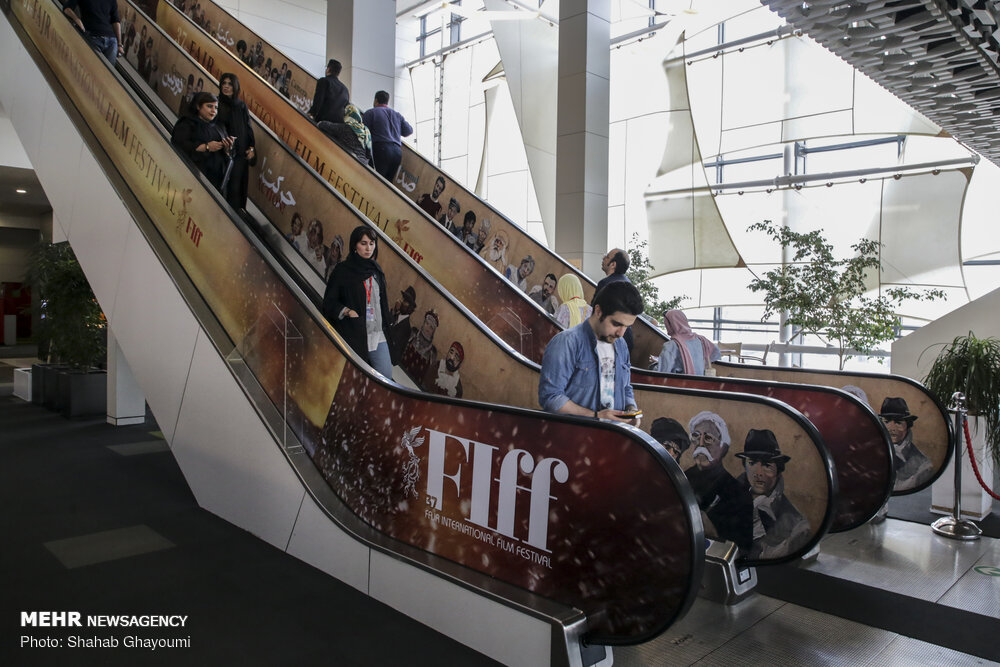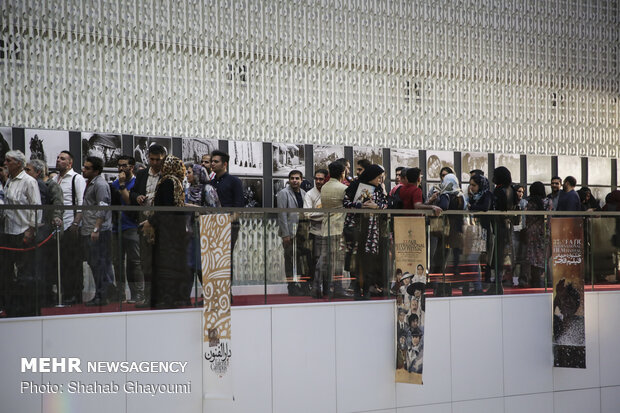After four years of having organized the international section of Fajr film festival as an independent event from its national section, one could now say with confidence that Tehran has come a long way in such a short span of time with its biggest international cinematic event and now is quite proud of it.
The Fajr International Film Festival has already proved its worth and credibility, establishing itself not just as a domestic venue for the Iranian festival goers who wish to experience a different kind of cinema, but also as a wider arena for hundreds of people around the world, who become guests for a two-week period to a diverse selection of movies from places that they have little to no exposure to. Fajr gives you a taste of high-quality, non-commercial movies from heterogeneous cultures, places that you have never been to, countries that you have had a stereotypical view on, or have been completely misinformed about.
This year, the overall screening program, comprising 11 sections, had as many as 109 titles from 75 countries from near and far – distance or culture wise – from Russia, Turkey and China all the way to Egypt, Denmark and Argentina. The international competition section, called ‘Cinema Salvation’, included 15 feature films and 15 short films, with a jury panel of seven notable figures in the film industry.
Personally, I found this year’s lineup to have a more coherent structure compared to the previous edition; selected movies generally had solid executions, breath-taking cinematography, award-worthy acting, and most importantly, thought-provoking, smooth-flowing subject matters, which made them both ‘festival-worthy’ and ‘audience-friendly’.
Movies such as ‘Erased’, a Slovenian-Croatian-Serbian production directed by Miha Mazzini, or ‘Before the Frost’ by Danish filmmaker Michael Noer, kept the audience on the edge of their seats, breathless with anticipation, with their tense, solid unfolding of the events, at the same time as they painted a spectacular image of the sociocultural context of a particular period of time in a specific part of the world.
While Fajr is not a themed festival, more focused on diversity of representation instead, many movies in this year’s lineup shared a number of characteristics in common: children, adoption or future generations; environment; strong female characters; rejection of conventions and refusal to submit to a higher power; moving tales based on true stories, and characters with free, fighting spirits that didn’t give up, that kept looking for solutions in the face of challenges and dire situations.

My personal favorites in the International Competition section were ‘Erased’ and ‘Before the Frost’. ‘Erased’, the story of a Slovenian woman whose identity was erased, along with 26,000 others, in the wake of the country's independence from Yugoslavia in 1991. Refusing to be ‘invisible’, she did everything she could to get her identity, as well as her newborn baby, back, even going so far as to expose herself on national TV. ‘Erased’ was both informative of a historical incident that is possibly unknown to many people around the world, and it was at the same time a breathtaking story of a strong-willed character that kept pushing forward against a hostile tide.

‘Before the Frost’, a rural period piece taking place in a wretched part of backwoods Denmark, was noteworthy for its honest portrayal of an old father (played by Danish star Jesper Christensen) who would go to great lengths for the happiness of her daughter; yet, his own personal gains were not hidden from the watchful eyes of the viewer.
Still, the grand prix (Golden Simorgh for Best Film) went to ‘A Russian Youth’ by Alexander Zolotukhin; a unique take on the horrors of World War I from the viewpoint of a brave yet useless young boy, who keeps a steadfast grip on the falling world around him, even as he loses his sight and his hearing on the Eastern front.
‘A Russian Youth’ was supported by legendary director Alexander Sokurov’s own non-commercial film fund. Sokurov himself is no stranger to Fajr. He was a guest at the 34th FIFF, with his documentary ‘Francofonia’ (2015) in the screening program.
‘Before the Frost’ still managed to grab the Best Actor award for Jesper Christensen, who you might know from ‘Melancholia’ (Lars von Trier) or ‘Casino Royale’ (Martin Campbell).
The Best Script award went to Gernot Kraa and Oliver Haffner for ‘Wackersdorf’ from Germany; another wonderful tale about the environment, refusal to submit, and the power of public against the state wrapped neatly in a true story.

Martina Apostolova grabbed the festival’s Best Actress award for ‘Irina’ by Bulgarian director Nadejda Koseva; ‘Irina’ also features a strong female character that powers through the unpleasant surroundings of a small mining town. Her story is that of survival, as she needs to save her family from poverty by becoming a surrogate mother for money.
Last year, the festival made headlines by hosting three-times Oscar winner, American director Oliver Stone, and legendary Italian actor Franco Nero. This time, the guest of honor was the renowned American screenwriter, director, and film critic Paul Schrader, who held a workshop on transcendental style in film, and attended a press conference at Charsou Cineplex on April 24. The legendary American filmmaker compared the atmosphere of Fajr with that of Toronto, Venice and Berlin, voicing surprise by the sheer size and dimensions of it. Talking about the Iranian cinema, he praised the works of the late Palme d'Or Abbas Kiarostami and two-time Oscar winner Asghar Farhadi, saying the Iranian natural cinema shows growth and it is full of sense of life.
The 37th Fajr International Festival was presided over by 52-year-old award-winning director Reza Mirkarimi from April 18 to 26 in the Iranian capital Tehran.

























Your Comment